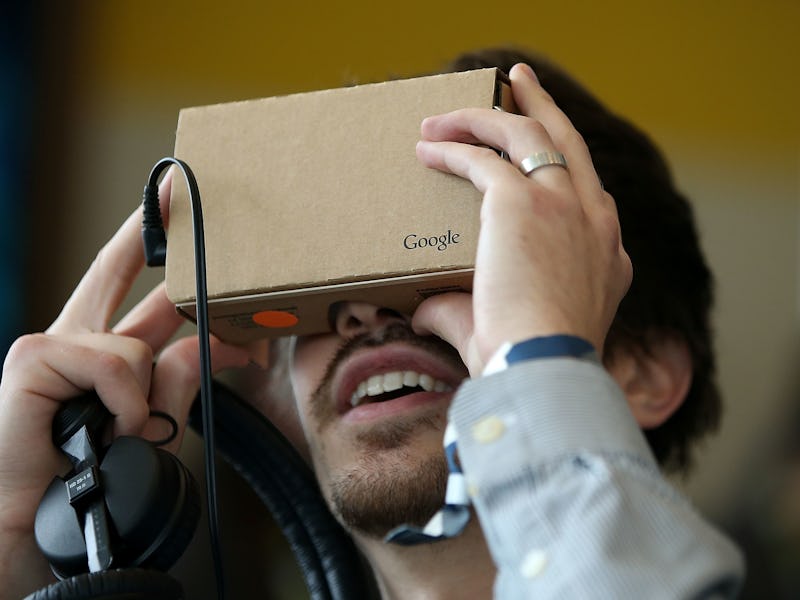Alphabet Is Now the Most Valuable Company in the World
Here's how it beat Apple.

Google — or Alphabet, Inc., Google’s parent company — is not to be outdone by anyone or anything. It’s now more valuable than any other publicly-traded company on the planet, beating Apple. The CFO, Ruth Porat, talks about billions like you and I talk about single dollar bills. And, in its quarterly earnings call on Monday, she announced that Alphabet’s revenue was a cool $21.3 billion over the last three months.
That’s an 18 percent increase from the same quarter’s results last year. The aged Google search engine is looking down with a smile at her progeny, a progeny which has almost taken over the entire world. (A big part of the focus for 2016 is bringing the “next billion users” online, by which they mean into Google’s all-encompassing net, and, beyond that, getting everyone connected.) And a progeny which is, frankly, raking in money like it’s leaves in October.
Google makes money, primarily, from advertising — and some money from its products. In this respect it resembles scores of companies, only, with Google, it’s multiplied by several million in magnitude. Advertising accounted for $67 billion of its $75 billion revenue in 2015.
Six of the big-name Google ventures — Search, Android, Maps, Chrome, YouTube, and Google Play, all have over one billion monthly active users each. And, as CEO Sundar Pichai announced during the call, Gmail has “joined those ranks, crossing that number last quarter.”
But although Google is continuously raking it in, it’s also spending an equally daunting amount of money. Much of this spending is on “long-term investments,” also known as “Other Bets.” Some of these Other Bets include Nest, Fiber, Verily, and its fledgling Cardboard virtual reality product, which just hit the 5 million-sold mark. Additional Other Bets include — but, needless to say, are in no way limited to — their ventures into self-driving cars and virtual reality. Pichai implied that he doesn’t even want to focus on money: He just wants to continue the innovation, continue to make the lives of people around the planet better. He wants Google to be there for you, facilitating your every need, at all parts of your day.
On this note, Pichai — a man with a calm, sedating voice — expressed what could’ve been perceived excitement about machine learning. Last week, he reiterated, Google A.I. mastered the ancient game Go. And that’s just an image of the power of artificial intelligence; unless you’re an avid Go player, it does nothing to show how A.I. will make our lives better. Pichai said they’re working on incorporating A.I. into more Google products. A.I. already powers Inbox by Gmail’s Smart Reply, which offers you three choices for the most sensible, concise responses to your emails. (Having used the feature, I can confirm it’s good — and only getting better.) Already, the feature accounts for 10 percent of all Inbox replies. Even this functionality, though, only “scratches the surface” in terms of Google’s ability to “truly be there for [its] users,” Pichai said.
These “Other Bets” are long-term investments because, obviously, if they come to fruition, they could make Google a boatload of money. So, for now, the attitude seems to be invest, invest, invest. Then sit back, wait for each product to reach its true potential, and then add to the ever-growing leaf pile.
He added that he, and everyone else at Google, is excited to make even more progress on this vision in 2016, and to make sure that they are “solving big problems for everyone,” not just for the developed world.